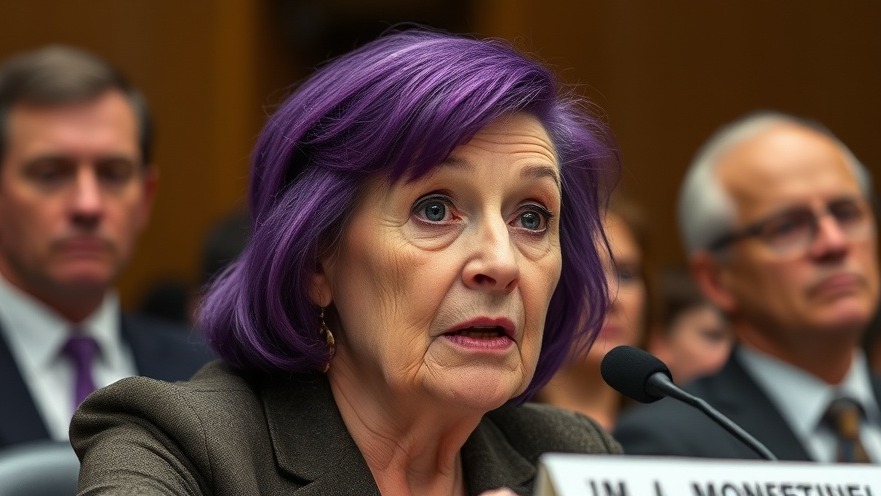
The Appropriations Process: A Critical Congressional Function
The appropriations process stands as a cornerstone of the U.S. legislative framework. It ensures that there is a structured way to allocate federal funds and mandates bipartisan cooperation. This careful negotiation reflects the priorities of constituents, aiming to provide essential services across the country. Rosa DeLauro's impassioned defense of this method underscores its historical significance, as any disruption could lead to severe consequences, such as government shutdowns.
In 'Rosa DeLauro Accuses OMB Director Of Arranging 'A Lawless Upheaval Of The Entire Federal Government', the discussion dives into the complexities of the appropriations process and the implications of executive overreach, prompting deeper analysis on the current political landscape.
Lawless Upheaval: The OMB’s Controversial Role
In her statements regarding the Office of Management and Budget (OMB), DeLauro described actions as a "lawless upheaval" that could bypass the constitutional process. This assertion invites scrutiny of the OMB’s influence over fiscal policy. If federal budgetary directives become dictated solely by executive priorities, the foundational checks and balances that align the government with democratic values are at risk.
The Bipartisan Nature of Appropriations
One of DeLauro's critical points highlighted the bipartisan essence of the appropriations committee. Historically, this committee has balanced the varying needs of Republicans and Democrats, reflecting a compromise that benefits the American people. The apparent dismissal of this collaboration by the OMB poses a threat to the established protocols designed to uphold democratic governance.
The Power of the Purse: A Constitutional Mandate
The debate surrounding federal spending revolves around the concept of the "power of the purse." This principle is embedded in the U.S. Constitution, emphasizing that Congress holds the authority over federal appropriations. Any attempt by the executive branch to sidestep this mechanism raises alarms about governance and accountability, vital pillars that support a functioning democracy.
Historical Precedents: The Risks of Executive Overreach
Historically, the balance between legislative and executive powers has been tested. Instances of executive overreach often lead to public dissent and institutional crises. DeLauro's concerns resonate with cautious echoes of previous administrations where unchecked power raised eyebrows and fostered civil unrest. As legislators grapple with the current political climate, the importance of adhering to historical precedent becomes further amplified.
Future Predictions: Potential Impacts on Governance
Looking ahead, the implications of a weakened appropriations process could have cascading effects across various sectors, from public education to infrastructure development. With fewer checks in place, the potential for misallocation of funds increases, threatening the fabric of public service and governance. Advocates for fiscal responsibility must remain vigilant against shifts that may sideline bipartisan cooperation.
American Voter Perspectives: What Does This Mean for Citizens?
The voter perspective is crucial in these discussions. As constituents feel the direct impact of federal spending on healthcare, education, and infrastructure, stories of budget cuts or sudden policy shifts can create fractured relationships with their elected representatives. Understanding how appropriations impact their daily lives can galvanize voters to demand accountability and transparency from their leaders.
Conclusion: A Call to Action for Stakeholders in the Democratic Process
As the dialogue continues around the appropriations process, it is essential for stakeholders, including citizens and lawmakers, to engage actively in advocating for transparent practices. DeLauro's passionate defense serves as a rallying cry, urging all involved to stand firm against any forces that threaten to compromise the established appropriations process. Reinvigorating trust in government begins with respecting its foundational structures, an endeavor that requires civic participation and vigilance.
 Add Element
Add Element  Add Row
Add Row 



Write A Comment